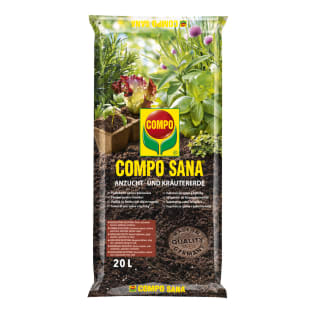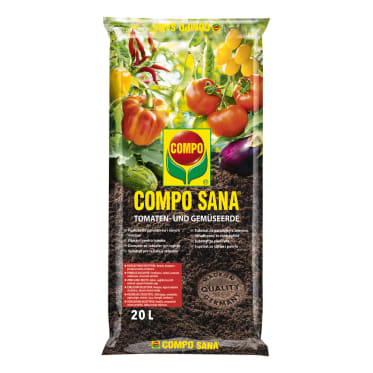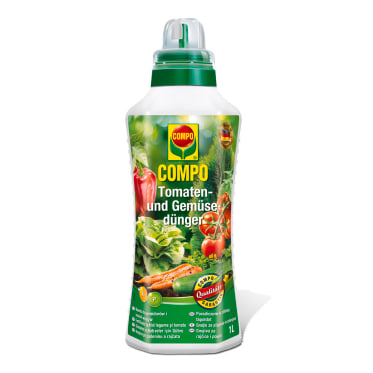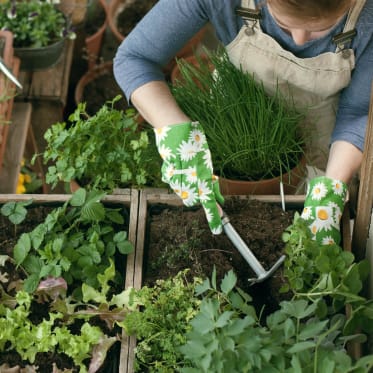Frequent search terms
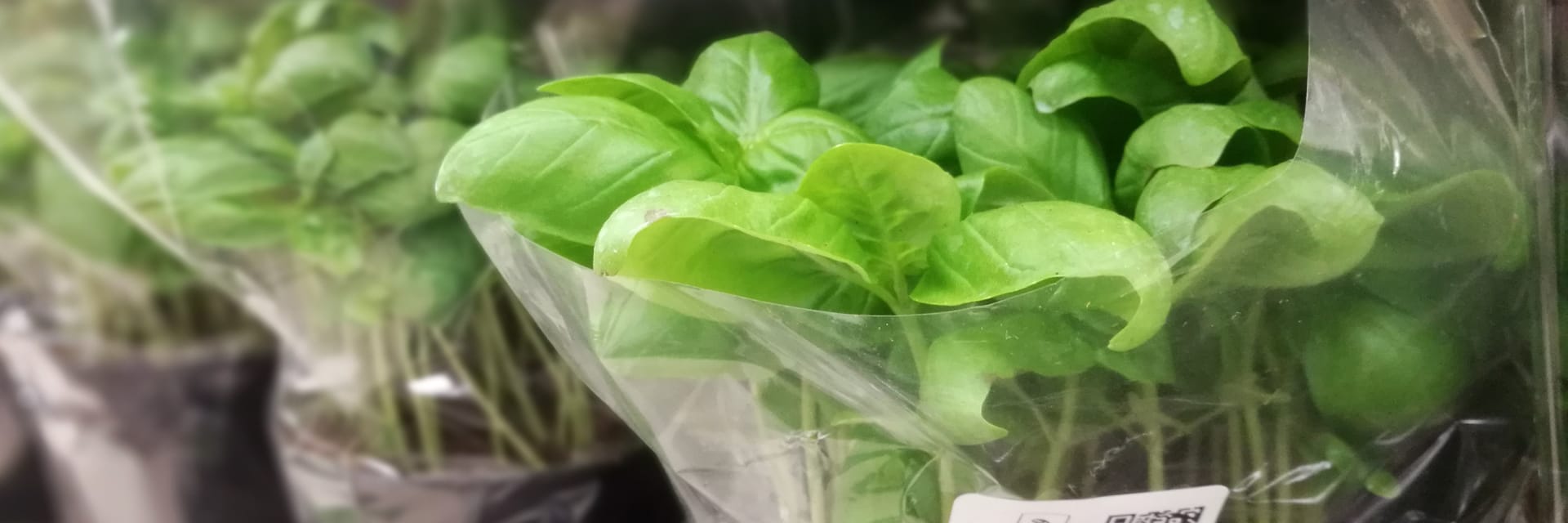
- COMPO
- Guide
- Plant Care
- Herbs, fruits and vegetables
- How to prolong the life of potted herbs from the supermarket.
How do I store basil and other herbs safely?
Enjoying shop-bought herbs for longer
Almost all of us have been there... Basil, parsley or chives bought from the supermarket look fresh and crisp but then start to wilt after only a few days. And for some of them the next stop is the organic waste, which is neither sustainable nor necessary. Read how to prolong the life of your food seasonings here – whether it’s on the windowsill or balcony or in the garden.

First aid after purchasing
Tomato sauce, pesto or delicious sandwiches taste twice as good with fresh herbs grown in the garden! But to get the most out of herbs bought from the supermarket or your favourite retailer, the first thing you should do when you get home is repot them.
Release the highly cultivated herbs from their pots shortly after you buy them, as they are often grown in very tight conditions and have an extremely dense root system. Treat the herbs to one or several new pots and a beautiful spot in a tub or window box. It’s advisable to plant them in a suitable substrate, i.e. a special potting soil for herbs.
Speaking of shopping, why not think about trying out new herb species and bringing diversity into your kitchen? From coriander for delicious Asian food across Thai basil through to flat- instead of curly-leaf parsley.
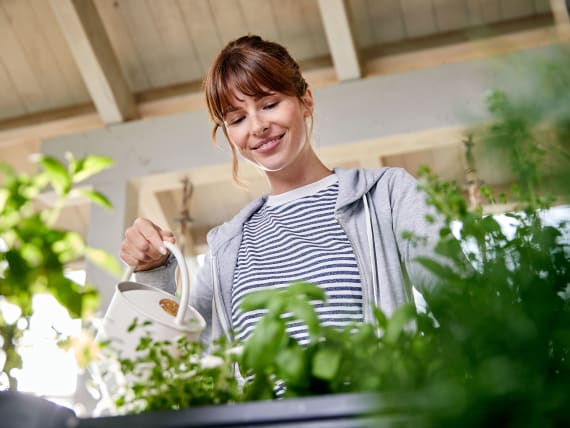
Where is the right spot for my herbs?
Although permanent exposure to the sun isn’t a must, it’s no coincidence that these popular plants are known as Italian herbs or Provençal herbs. After all, they come from places where the sun shines often and for long periods. With that in mind, look for a spot at home that isn't completely in the shade or facing north – but one that isn't exposed to blazing sunlight, either.
Basil is definitely a sun-worshipper, while parsley thrives in partial shade. There’s also nothing to stop you from changing the location a little depending on the weather. This will stimulate the development of aromas.
By the way, if you put your herbs on the balcony or in a vegetable patch, it’s worth considering compatible neighbours. For example, basil likes tomatoes or courgettes, and rosemary likes carrots.

Herbs all year round
Although herbs from the supermarket won’t take care of themselves, if you pay them a little attention you’ll enjoy delicious parsley or chives for cream cheese all year round.
Proper watering is the most important thing. One important point to remember is that none of the common species appreciate being soaked. But as with lemon balm and parsley, basil does like the soil to be a little moist. Thyme and oregano have rather firm leaves and don’t need quite as much water. It’s advisable to always water directly at the root.
You only need to fertilise the herbs in moderation – check the requirements of the species in question beforehand. As a rule, you don't need to fertilise heavily early on. Herbs bought at a supermarket in particular are already growing in soil with an extremely high nutrient content. It only makes sense to add fertiliser to the water after six to eight weeks.
Have we filled you with inspiration for next year? If so, why not think about growing your own herbs? We’ve summarised everything you need to know here.
Suitable products
Discover more about herbs here

